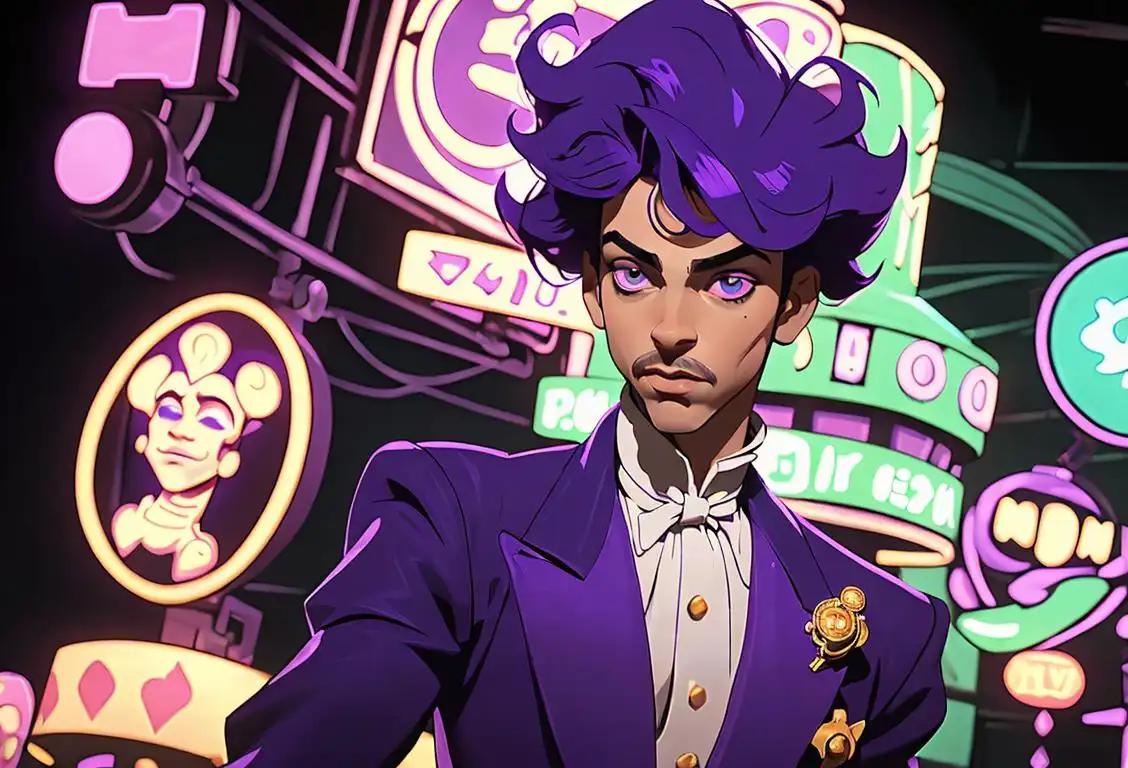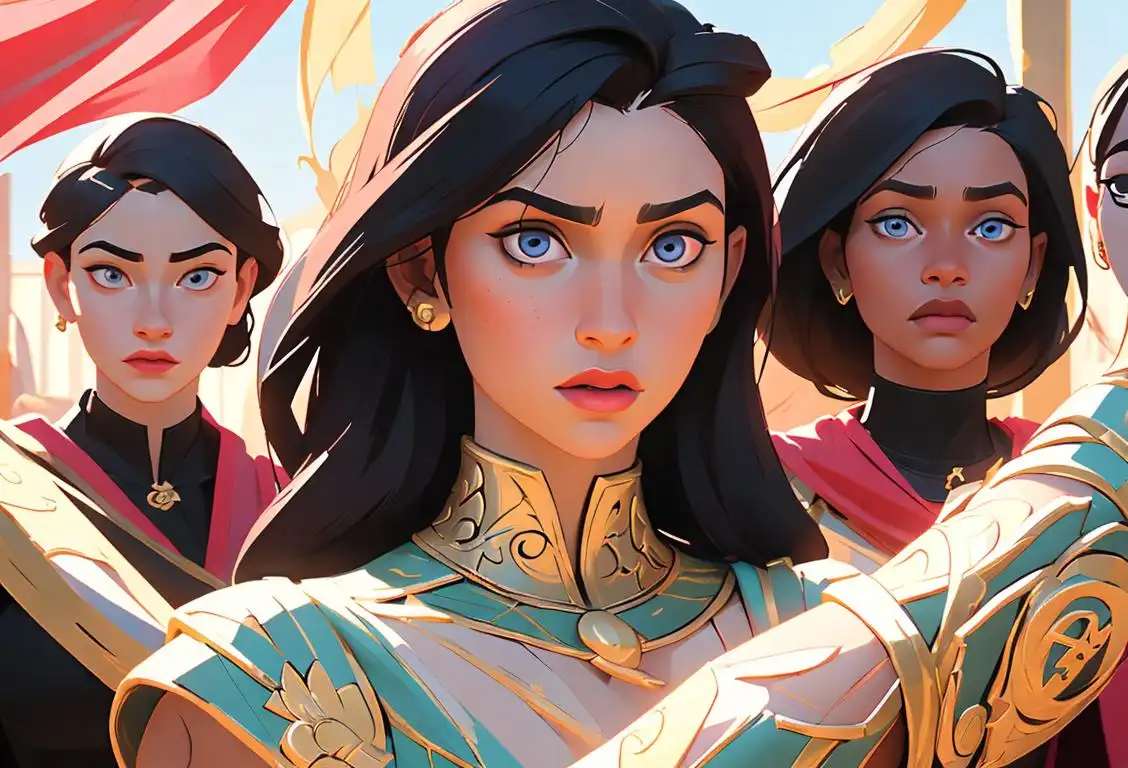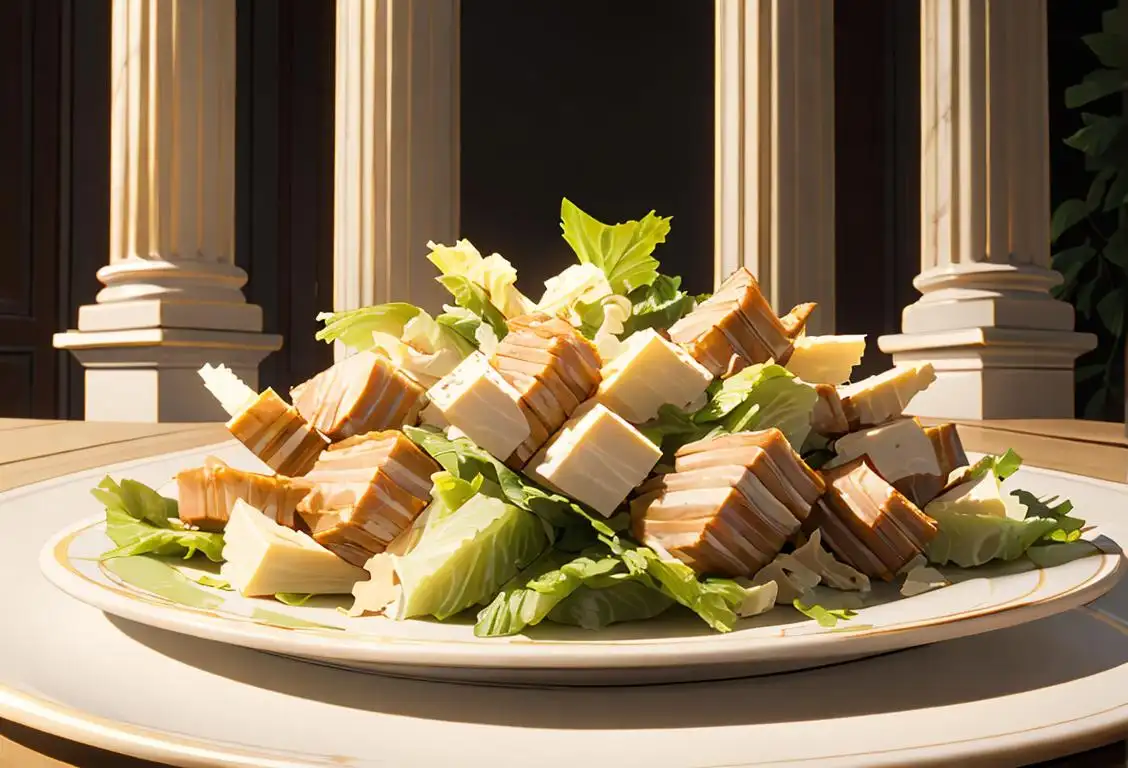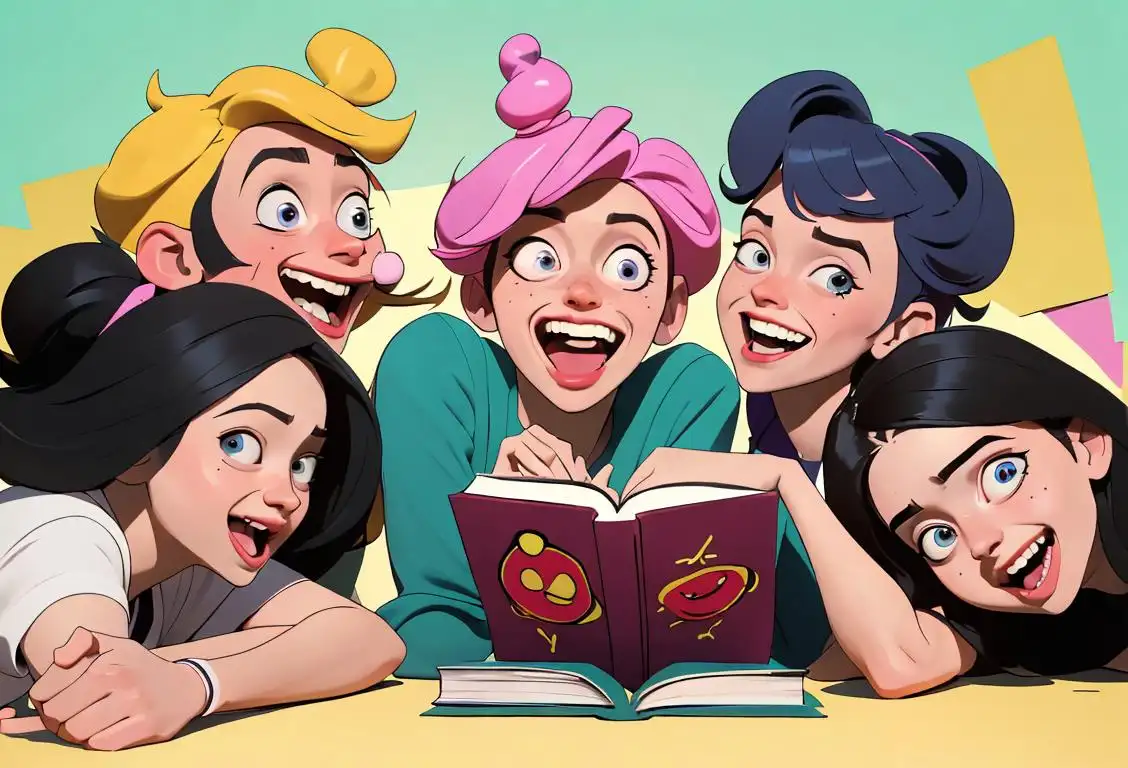National Prince Day

Let's press pause on our busy lives and get our groove on for National Prince Day. A remarkable day dedicated to celebrating the life and music of the handsomely talented, eccentrically dressed pop icon, Prince. Time to crank up the volume and party like it's 1999!
When is Prince Day?
It's national prince day on the 26th April.
The Purple Reign of Celebration
National Prince Day found its rhythm online around 2016, after the artist's untimely departure from our earthly stage. With 38 mentions populating the digital universe on April 26, 2016, Prince’s steadfast fans showed up in their virtual numbers to show some love.
Party Like It's 1999
The day is filled with reminiscing about Prince’s greatest hits, watching classic concerts, and some fans even put on their best ‘Purple Rain’ inspired attire. It seems to be less about mourning than it is about merriment and memory-making.
Put the Needle on the Record
And we're not kidding when we say memory-making! People swap stories of their favourite Prince tunes, first concert experiences, or that one time they managed to see him perform from the third row. And let's not forget the nostalgic trip down the vinyl-lane, pulling out those old records and enjoying the crackle of the groove.
His Royal Purpleness Lives On
There's a certain comfort in knowing that such a day exists, where fans across the globe can come together and celebrate a legendary figure that many still hold dear. Truthfully, with the impact Prince left on the music industry and his fans, it’s almost as if he never really left.
History behind the term 'Prince'
13th century
Origin of the term 'prince'
The term 'prince' can be traced back to the 13th century and originated from the Old French word 'prince', which was derived from the Latin word 'princeps'. In Latin, 'princeps' referred to the chief or leader of a noble family. It later evolved to represent a ruler or sovereign of a territory.
15th century
The rise of the Renaissance princes
During the 15th century, the Renaissance period ushered in a new era where the term 'prince' gained prominence. Princes were individuals who held significant political power and ruled over regions or city-states. The Italian city-states, such as Florence, Milan, and Venice, witnessed the emergence of powerful and influential princes who supported the flourishing arts and sciences of the time.
16th century
The 'Divine Right of Kings'
In the 16th century, the concept of the 'Divine Right of Kings' became prevalent. It asserted that the authority of a monarch was derived from God, making them the absolute ruler of their realm. The title of 'prince' was often associated with the heir apparent, who would succeed to the throne. It represented a noble lineage and the future monarch's position within the royal hierarchy.
18th century
Princes and the birth of modern nation-states
During the 18th century, the idea of nation-states began to take shape, with rulers seeking to consolidate and expand their territories. Princes played a crucial role in the formation and governance of these states. They acted as rulers of smaller regions within the larger kingdom and often held considerable regional power. The monarch often granted these territories to favored relatives or allies, establishing a network of loyal princes.
20th century
Evolution of the princely title
In the 20th century, the princely title underwent significant changes. While some princes continued to hold political power, many became figureheads or ceremonial rulers within constitutional monarchies. Princes have also gained recognition beyond traditional monarchies, such as in the entertainment industry, where artists or performers are sometimes referred to as 'prince' or 'princess' in a symbolic sense.
Did you know?
Did you know Prince had a vault containing hundreds of unreleased songs? If released posthumously, we could have a new Prince album every year for the next century!Tagged
Celebration Fun Remembrance Music PrinceFirst identified
21st April 2016Most mentioned on
26th April 2016Total mentions
38Other days
Prince Day
Jikook Day
Womens Day
Caesar Day
Custodian Day
Obama Day
Dog Biscuit Day
American Beer Day
Gf Bf Day
Embarrass Your Friends Day








